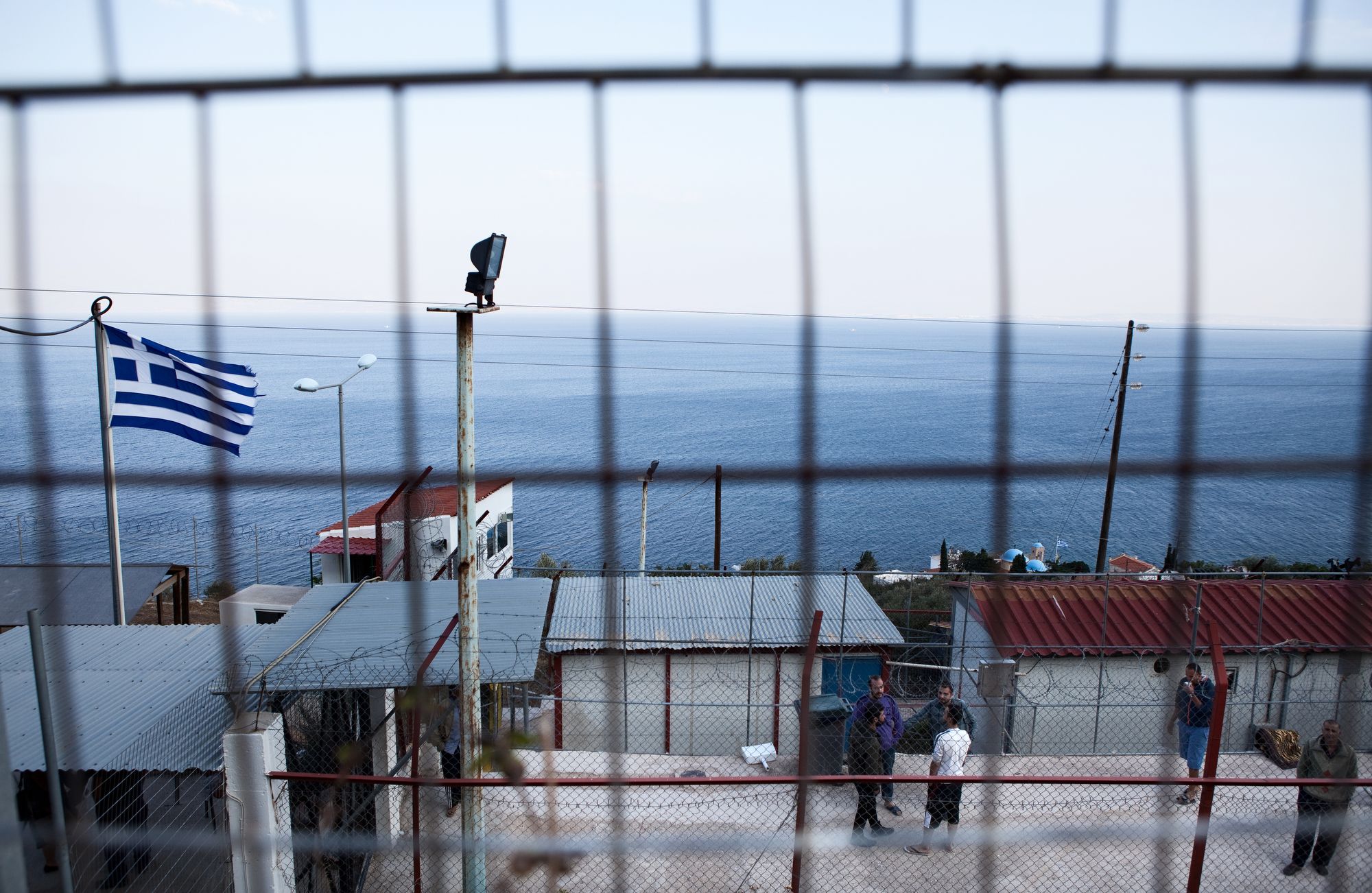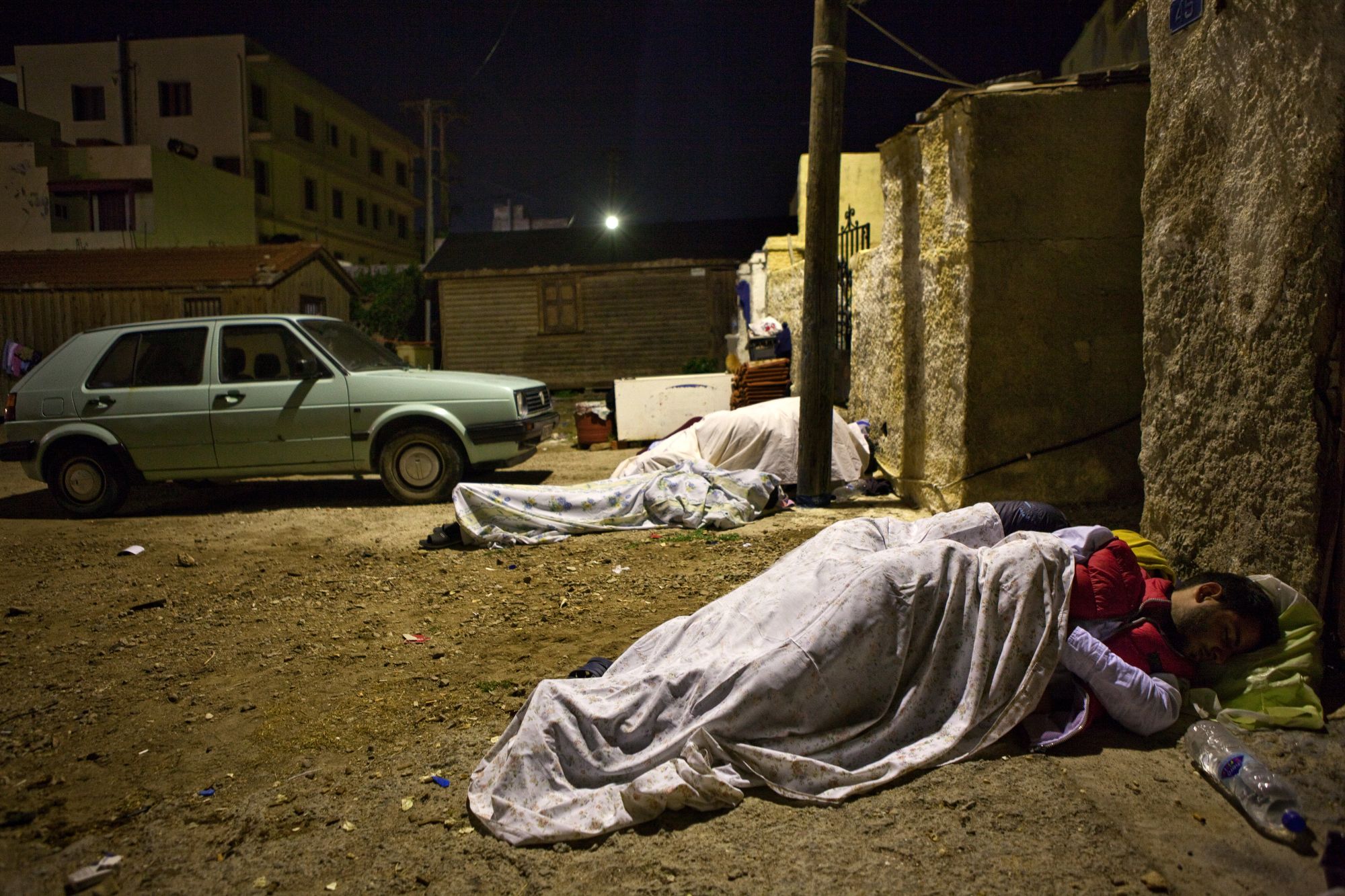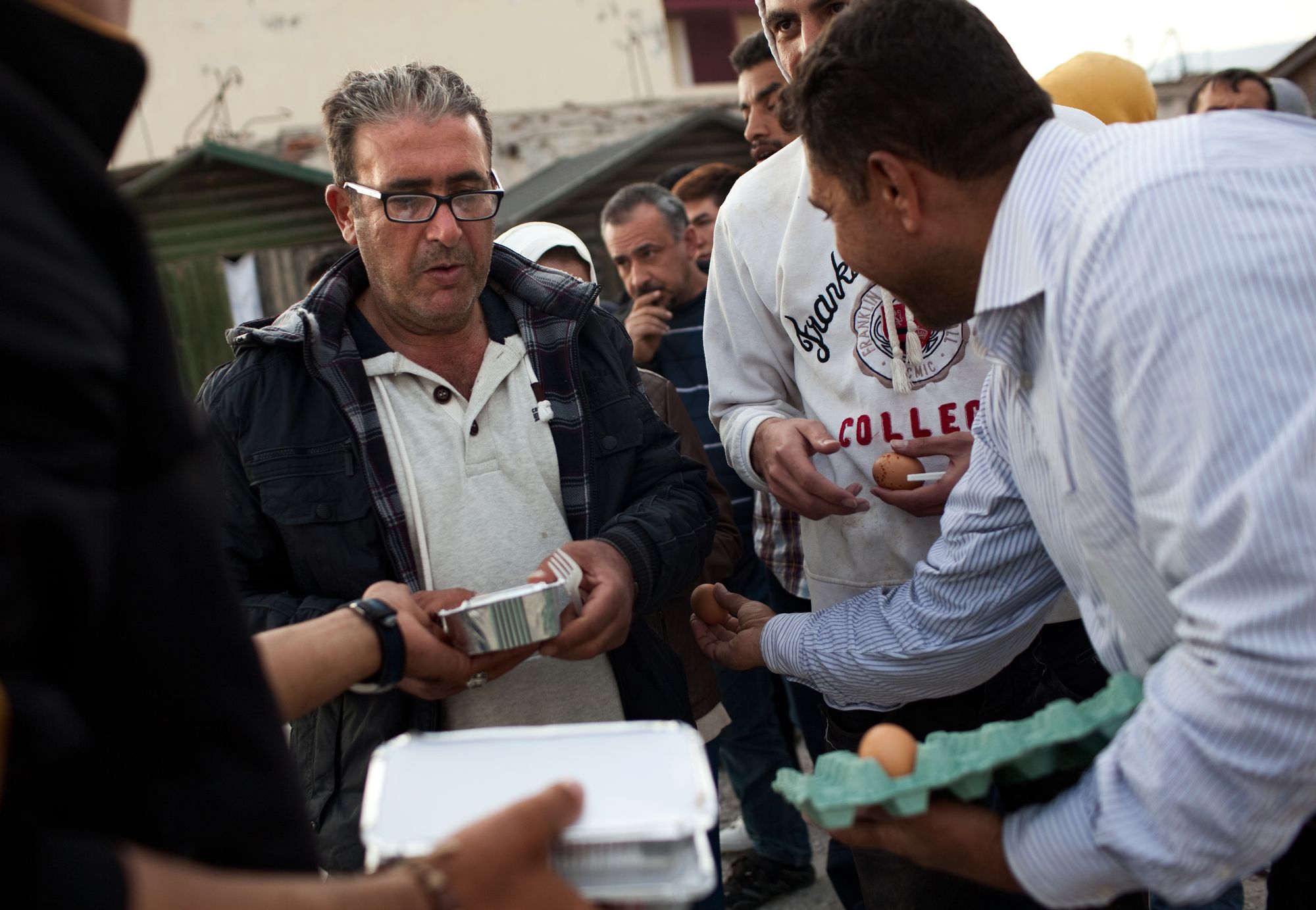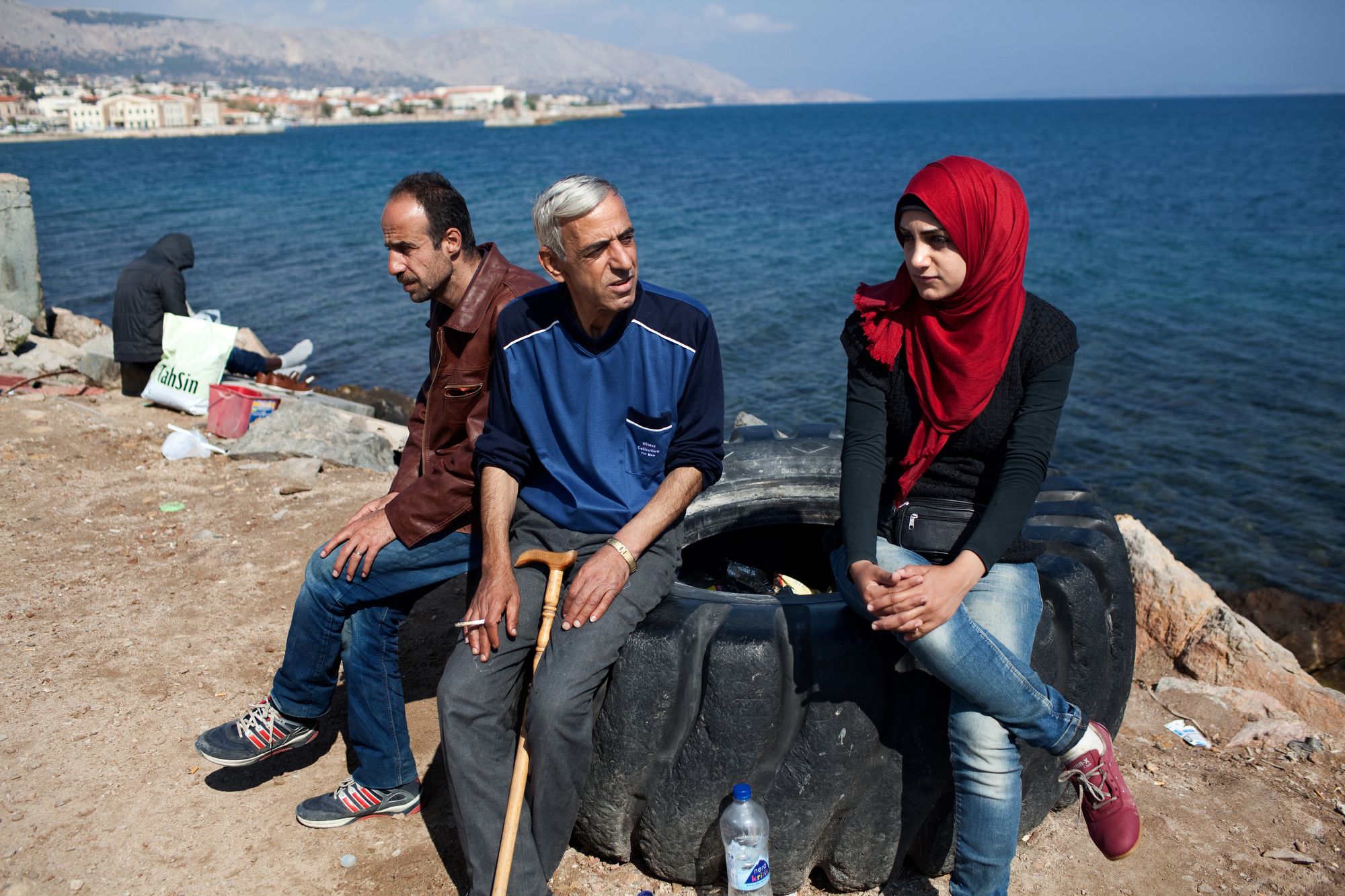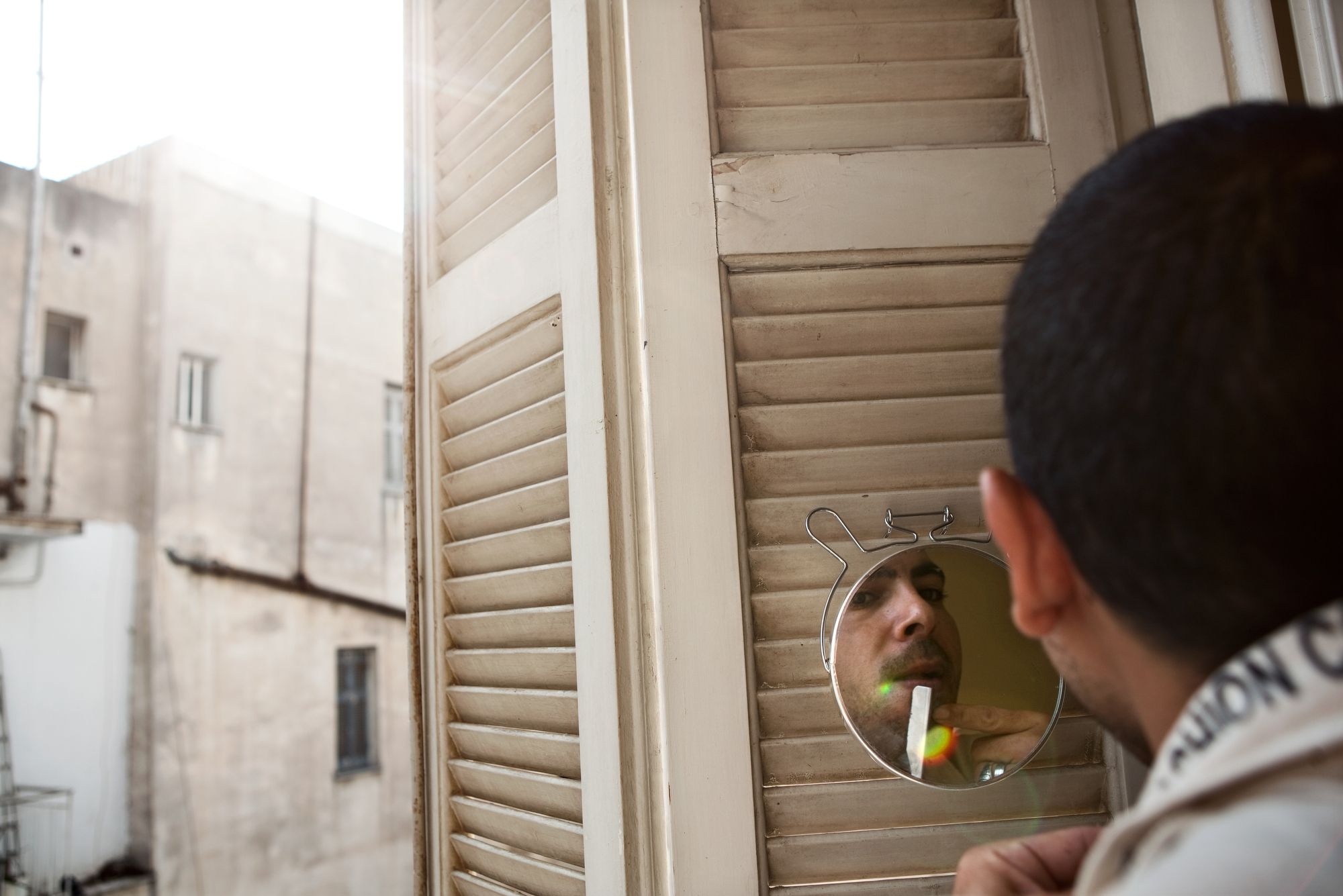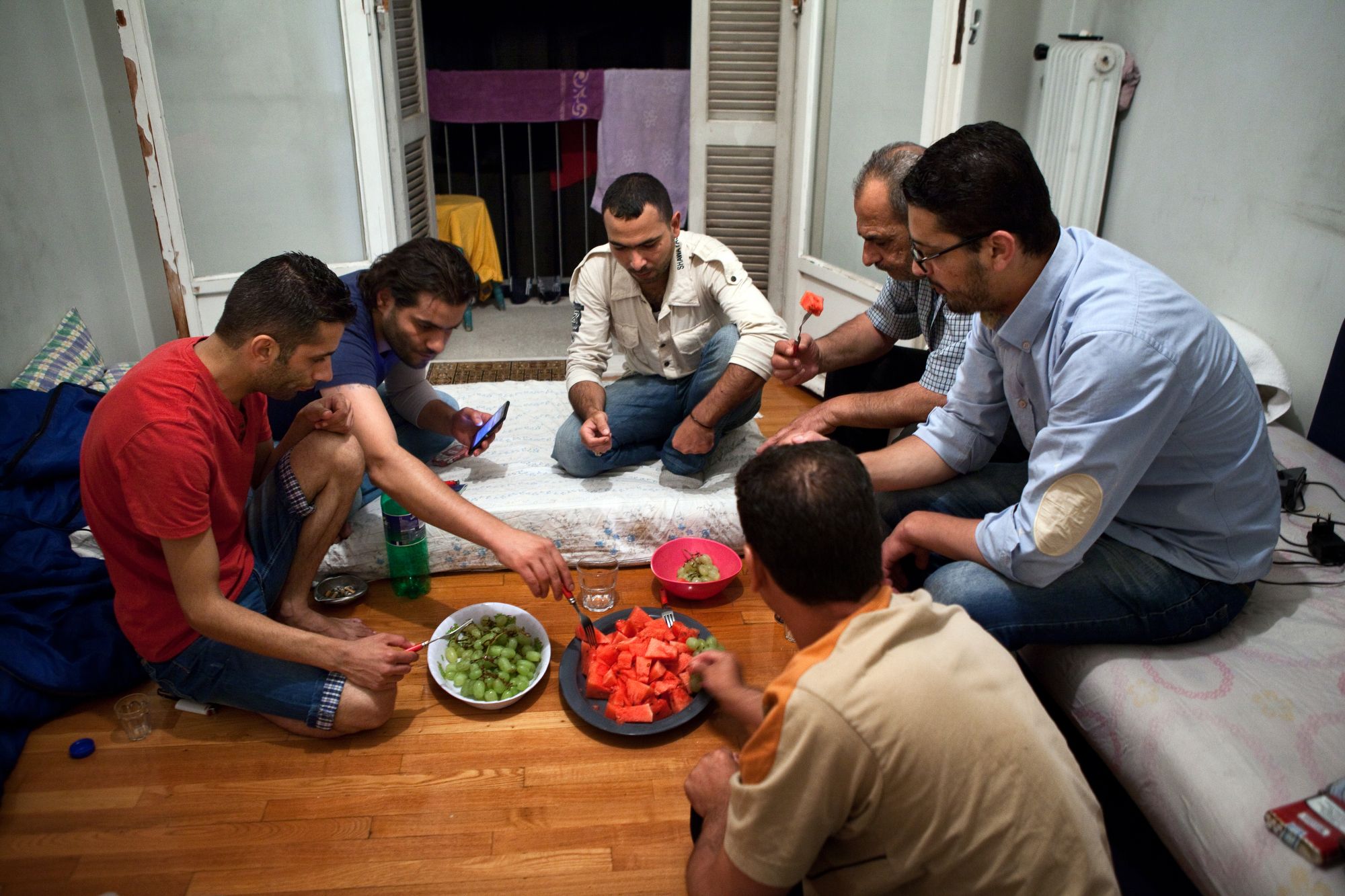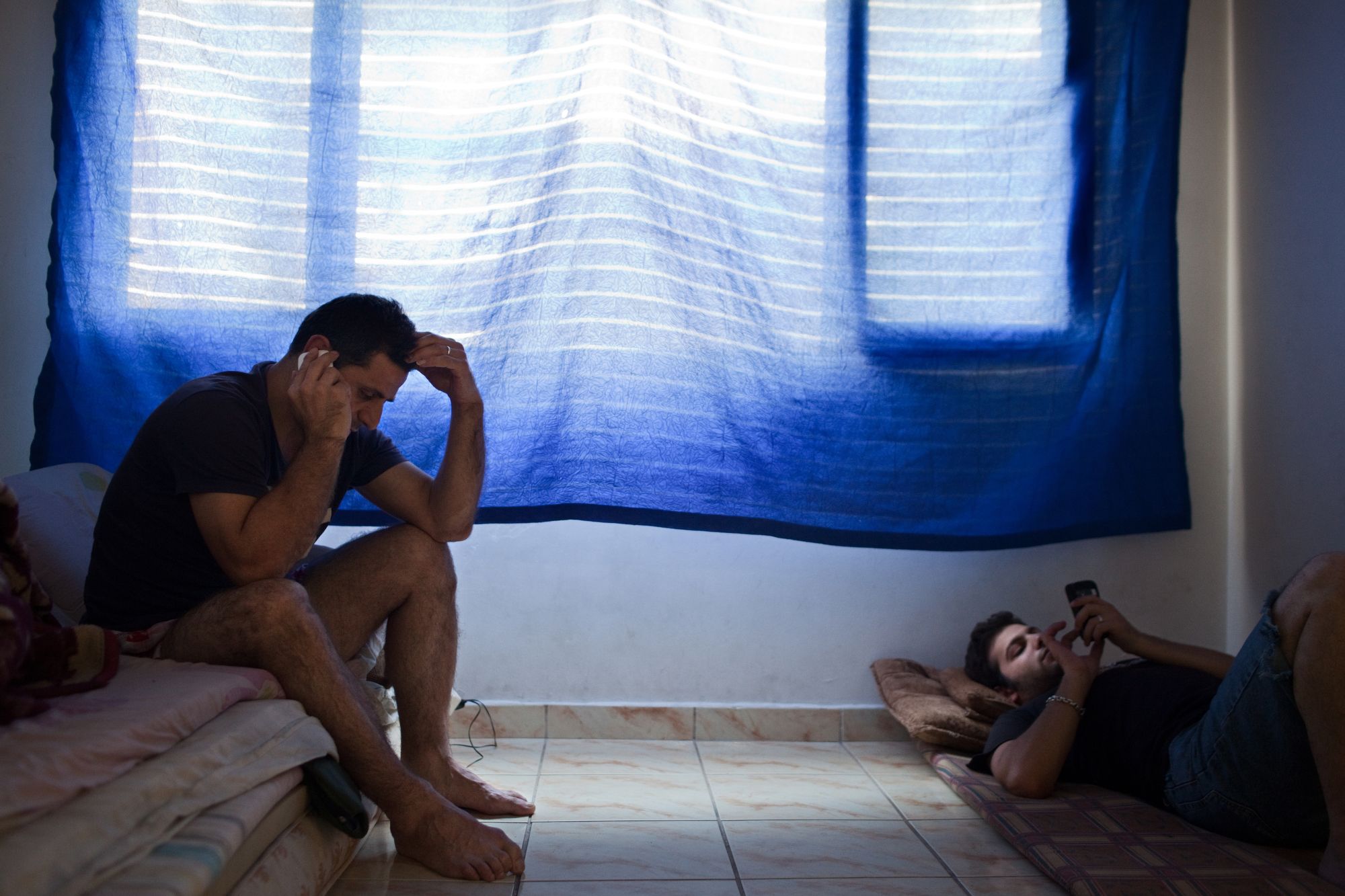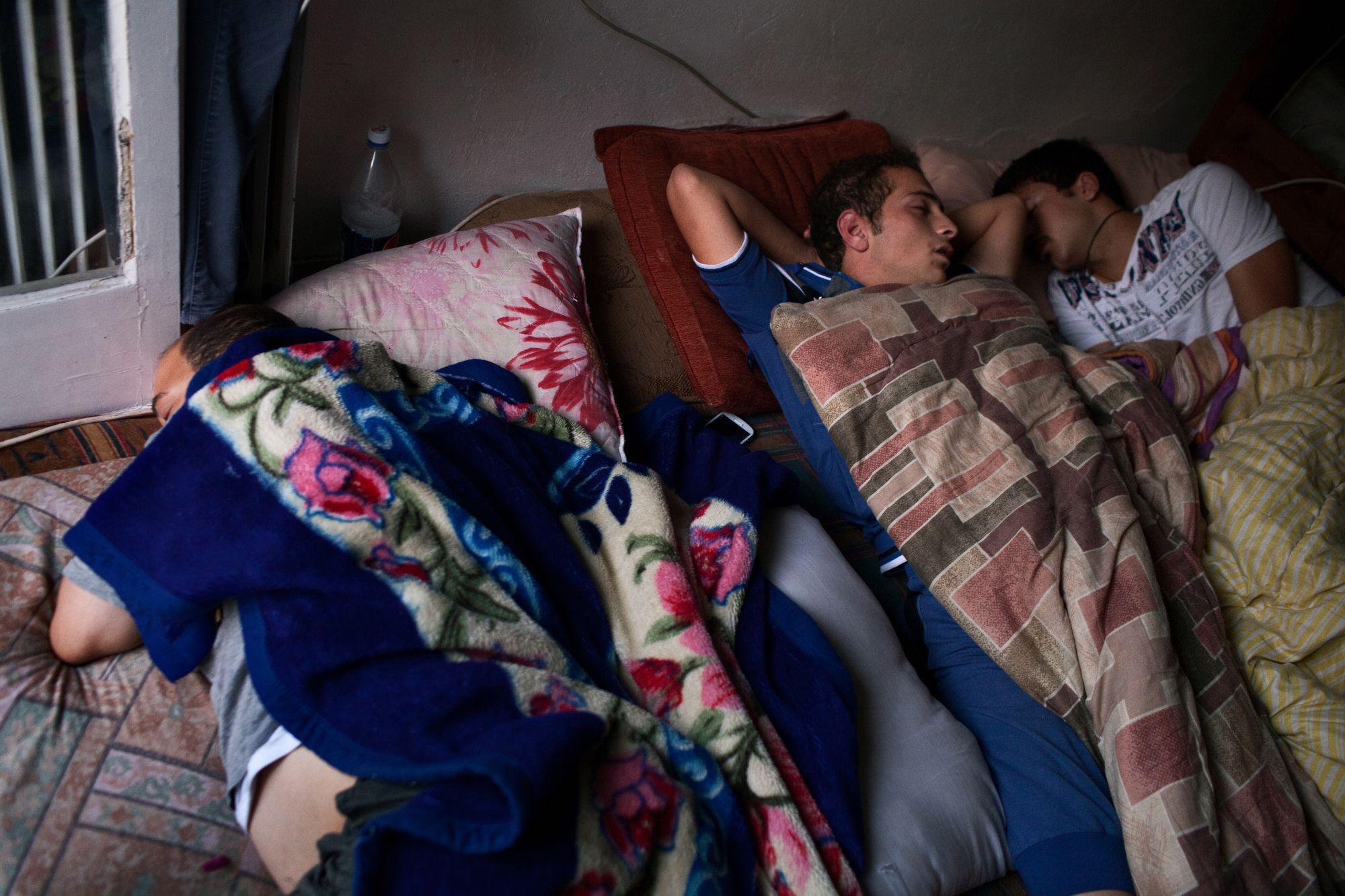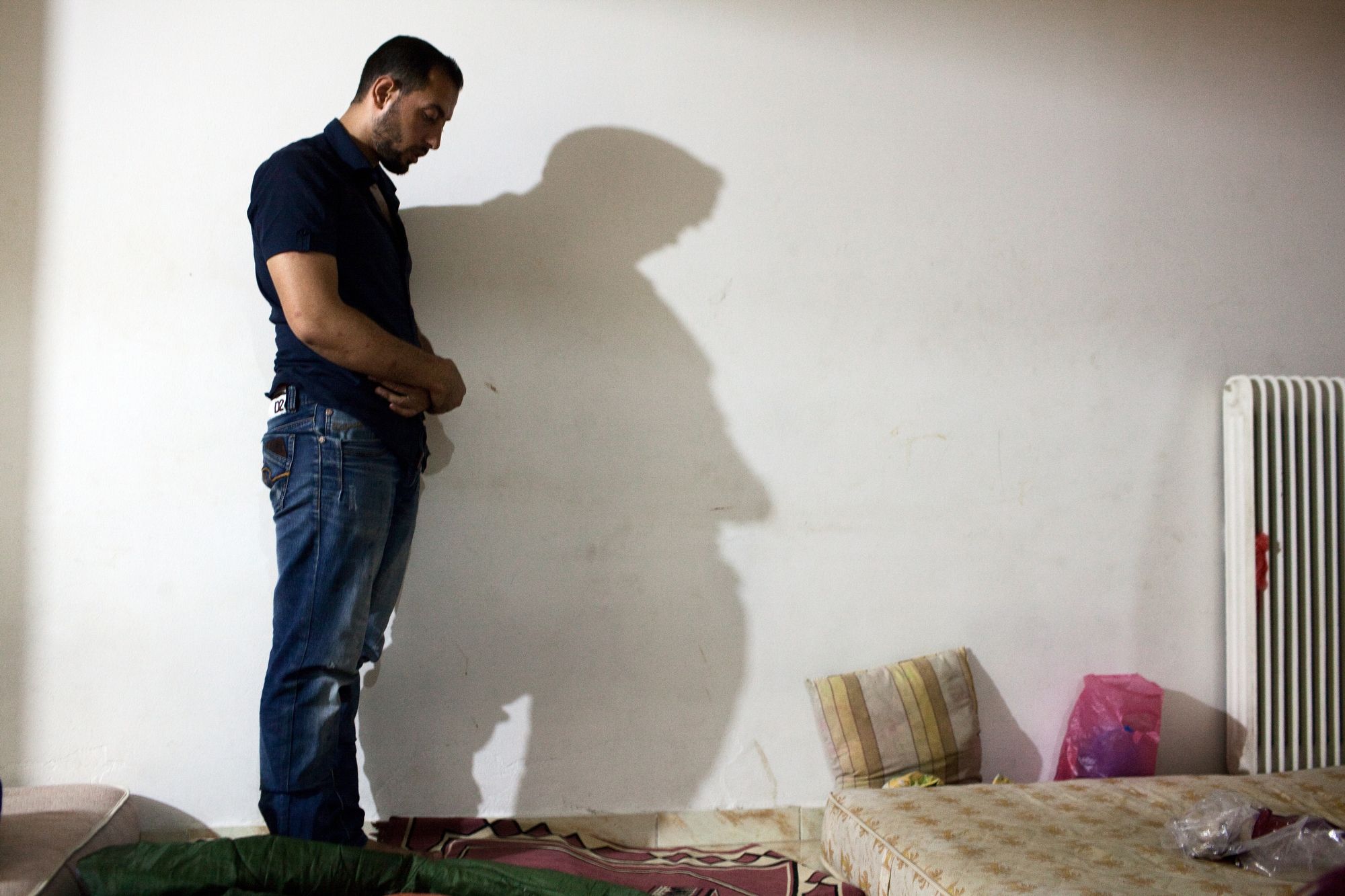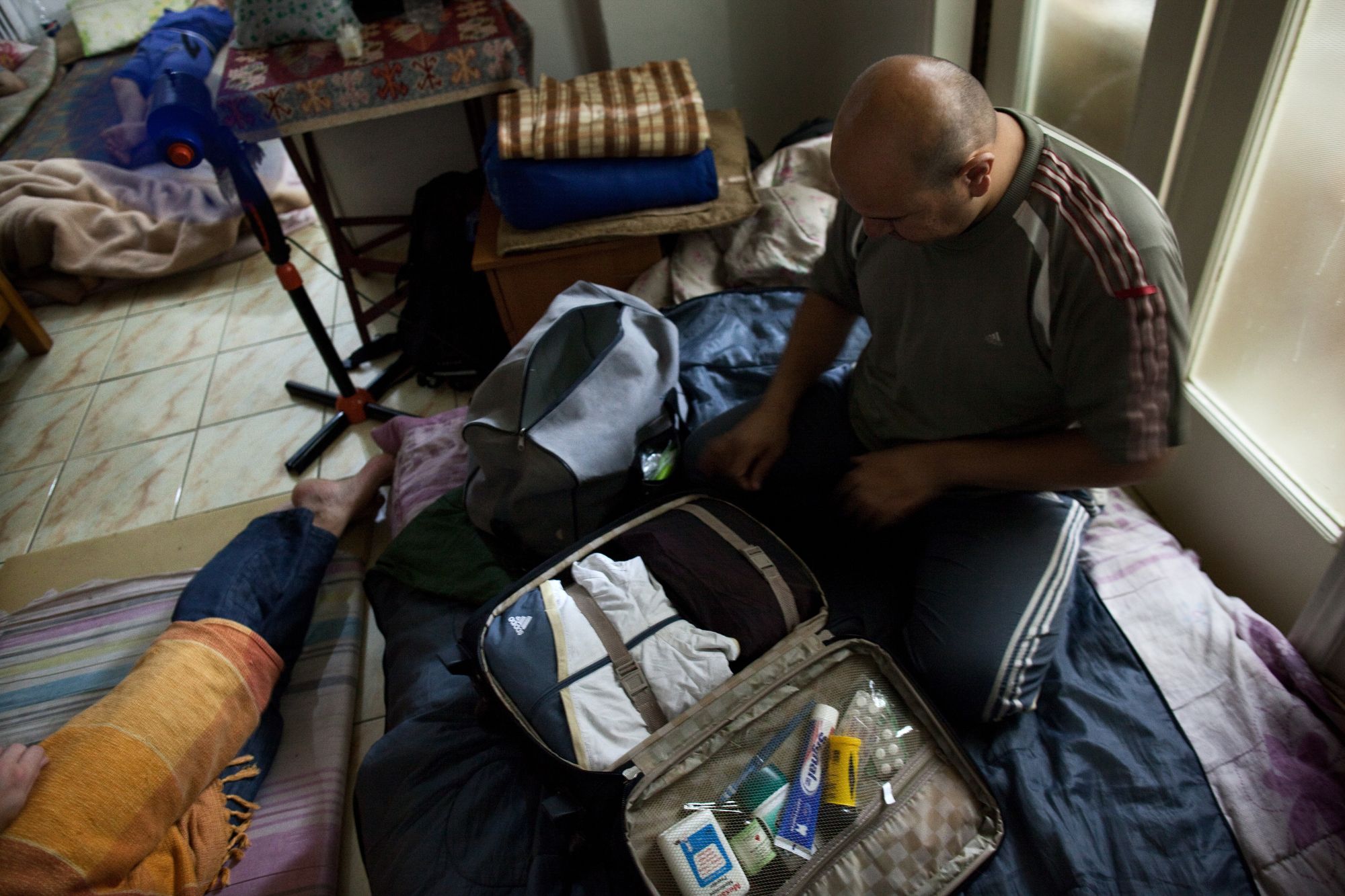In 2014, thousands of Syrian refugees made their way to Europe via boats smuggled from Turkey to Greece. Sometimes the boats make landfall on an island, but more often, they are intercepted by the Greek Coast Guard in the water. The boats appear almost everyday, and financially-strapped Greece is struggling to cope with the increasing numbers of new arrivals.
In most cases, Syrians are given documentation allowing them to stay in Greece for six months, but asylum is essentially impossible, and there are few official resources to help them. For these reasons, most Syrians come to Greece hoping to travel illegally to another European country such as Germany, Holland, or Sweden, where they can request asylum and receive state support as refugees. To do this, they often must pay a human smuggler to procure fake documents and facilitate their travel. It is a difficult, sometimes dangerous, and often very expensive journey to reach safety.
